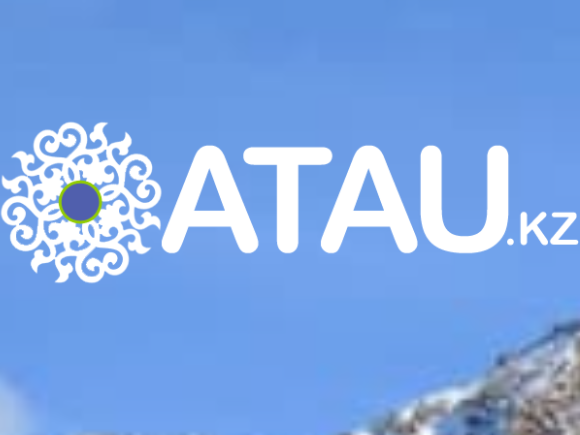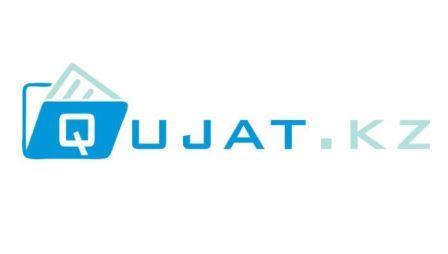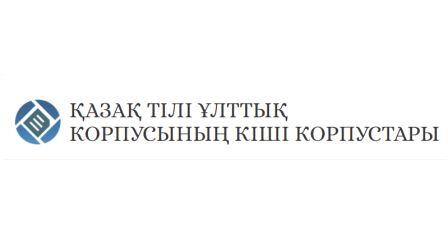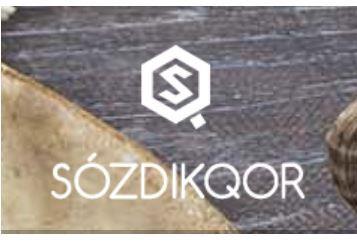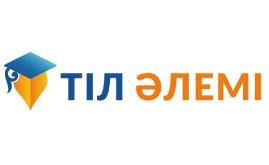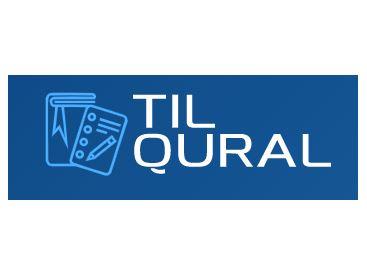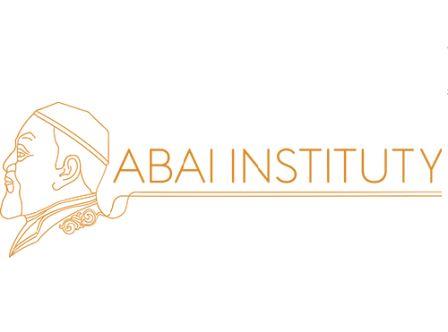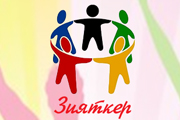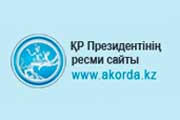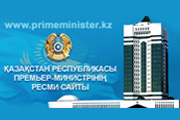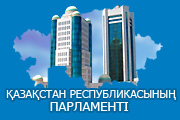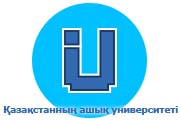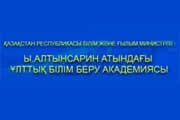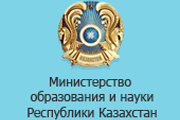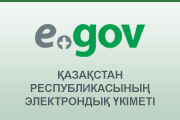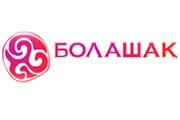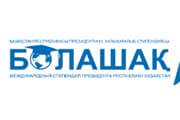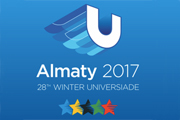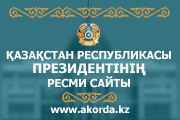MINIStry of EDUCATION AND SCIENCE of the REPUBLIC OF KZAKHSTAN
South Kazakhstan State Pedagogical University
«Approved»
|
|
EDUCATIONAL PROGRAM
"6B01505 Teacher training of Biology"
Code and classification of education: 6B01 Pedagogical sciences
Code and classification of areas of training: 6B015 Teacher training on scientific subjects
Awarded academic degree: Bachelor of Education in the educational program "6B01505 Teacher training of Biology "
Type of program: Bachelor, 6 level NRC / IQF / ISCE
Total credits: 240 Academic credits / 240 ECTS
Shymkent, 2021
Educational program discussed at the meeting of the Board of the Faculty of humanitarian and recommended for approval by the Academic Council of the University.
protocol № "__" __ 201__ y.
The educational program approved by the Academic Council and put into effect.
protocol № "__" __ 201__ y.
Agreed:
Vice-rector for educational and methodical work ___________ Isabek B.K.
Head of Educational and methodical Department ___________ Berdaliev D.T.
|
Dean of the Faculty of Natural Sciences ____________ |
Saulembayev A. T..
|
|
Methodologist in biology of the methodological center, Master of Natural Sciences, teacher-master of the Department of Education of the city of Shymkent ____________ |
Bazarbaeva S. I. |
Director of the "Nazarbayev Intellectual School" of
the physics and mathematics direction _____________ Ismaylova I.K.
Director of the School-gymnasium
№7 named after K.Spataeva Almahankyzy R.
The director of the gymnasium school №65 named
after Y.Altynsarina _____________ Kaiypov A.S.
Director of the gymnasium school № 38 named
after N. Ondasynov _____________ Zhusupov A. S.
The Working Group on the development of the educational program
|
№ |
Full name |
Position |
Contact phone |
|
1 |
Berdaliev D.T. |
Head of the Educational and Methodological Department of the South Kazakhstan State Pedagogical University; Candidate of Phys.-Mat. Sciences, Senior Lecturer, Department of Physics |
8 707 9324529 |
|
2 |
Baiseitova N.M. |
Сandidate biol. sciences, Head of Department of Biology of SKSPU, Shymkent |
8 702 1610260 |
|
3 |
Aru Z.A. |
Biology teacher "Nazarbayev Intellectual School", teacher of the highest category, Shymkent |
8 747 9655737 |
|
4 |
Almahankyzy R. |
Director of the School-gymnasium №7 named after K.Spataeva |
87015757171
|
|
5 |
Kerimbayeva A |
Director of the school-gymnasium No. 65 named after Y. Altynsarin |
87013359834 |
|
6 |
Zhusupova A. |
Director of the N. Ondasynov school-gymnasium №.38 |
87014523252 |
|
7 |
Bimurzaevа A. |
Director of the municipal state institution school-Lyceum № 52 |
87016567887 |
|
8 |
Isakov D.T. |
Сandidate biol. sciences, Associate Professor of Biology of SKSPU, Shymkent |
8 778-6294359 |
|
9 |
Sartbaeva G.M. |
cand. agricultural Science,
Senior Lecturer at the Department of Biology, SKSPU, Shymkent |
8 702 2149258 |
|
10 |
Khalikov G.S. |
cand. agricultural Sciences, Acting Associate Professor of Biology SKSPU, Shymkent |
8 702 2492309 |
|
11 |
Baidos A.
|
biology teacher of school-gymnasium №7 named after K.Spataeva |
8 778 5077805 |
|
12 |
Abdisamatova T. B.
|
Master, teacher of Department of Biology SKSPU, Shymkent |
8 702 3316447 |
|
13 |
Zhanatbekova A. Zh.
|
Student 3-year SKSPU, Shymkent
|
8 7718761496 |
|
14 |
Aibotaeva A.D. |
Student 3-year SKSPU, Shymkent
|
8 7024992098 |
Еxperts
|
№ |
Full name |
Position |
Contact phone |
|
1 |
Zhumagulov K. |
Cand. biol. Sciences, Associate Professor of Biology KazNPU named afetr Abay, Almaty
|
8 701 5934800 |
|
2 |
Isaev EB |
Head of the Department of Biology SKSU. Auezov, Shymkent |
8 702 2886414 |
Abbreviations:
NQF - National Qualifications Framework
IQF - Industry Qualifications Framework
ISCE - International Standard Classification of Education
EP - Educational Program
WC - Working curriculum
PED - Product elective disсiplines
KC - Key competencies
LO - Learning Outcomes
ICT - Information and communication technologies
LC - Landmark control
CC – Current control
FG - The final grade
GED - General educational disciplines
BD - Basic disciplines
SD - Specialized disciplinesLOM- Learning outcomes of the module
CONTENT
|
INTRODUCTION |
6 |
|
|
|
|
1 PASSPORT OF THE EDUCATIONAL PROGRAM |
7 |
|
1.1 Scope of professional activity of graduates |
7 |
|
1.2 The objects of professional activity of graduates |
7 |
|
1.3 Types of professional activity of graduates |
7 |
|
1.4 Objectives of professional activity of the graduate |
7 |
|
|
|
|
2 SOFTWARE FEATURES OF EDUCATIONAL |
8 |
|
|
|
|
3 PURPOSE AND VALUES EDUCATION PROGRAM
|
8 |
|
3.1 The purpose and objectives of the educational program |
8 |
|
3.2 Values of the Educational Program |
8 |
|
|
|
|
4 GRADUATE MODEL |
8
|
|
5 EXPECTED RESULTS training on educational programs
|
9 |
|
6 POLICY ASSESSMENT OF EDUCATIONAL ACHIEVEMENT |
9 |
|
|
|
|
7 WAYS AND METHODS OF ORGANIZATION OF EDUCATIONAL PROCESS |
10 |
|
|
|
|
8 CONTENT OF THE EDUCATIONAL PROGRAM
|
13 |
|
8.1 Correspondence of the results of training in the educational program of the graduate model |
13 |
|
8.2 Information about the modules |
14 |
|
8.3 Information about the disciplines |
22 |
|
8.4 Working curriculum of the educational program
|
34 |
INTRODUCTION
This educational program (hereinafter - EP) is a normative document of a conceptual nature, based on the goals and values of university education, containing general information about the professional activities of graduates, aims and objectives of EP of graduate model, the expected learning outcomes and policies of their evaluation of methods and methods of organization of educational process on the content of the program.
The main directions of EP:
- implementation of the educational policy of the University;
- implementation of trilingual education through the organization of educational process in the Kazakh, Russian and English languages;
- improving the quality of the learning process on the basis of competence approach;
- the willingness of students to educate themselves throughout their lives;
- formation of the outlook of students, develop their creativity, communication, critical thinking, research and information capabilities.
EP is the basis for the development of the following documents:
- Catalog elective subjects (CES);
- Academic calendar of the educational process;
- Individual educational plan (IEP);
- Working curriculum (WC);
- Working curriculum subjects (SYLLABUS);
- Teaching materials disciplines (TMD);
- expected results in the disciplines of learning;
- criteria for assessing the results of training in the disciplines;
- organizing all kinds of professional practice, as well as other documents necessary for the educational process.
1 PASSPORT OF THE EDUCATIONAL PROGRAM
1.1 Scope of professional activity of graduates
Bachelor of Education OP"6B01505 Teacher training of Biology " carries out his professional activities in the field of education.
1.2 The objects of professional activity of graduates:
- basic and specialized schools;
- specialized schools;
- the organization of technical and vocational post-secondary education.
1.3 Types of professional activity of graduates:
- training;
- educative;
- methodical;
- research;
- social and communicative.
1.4 Objectives of professional activity of graduates
Training:
- training and development of students;
- the organization of educational process in professional activities;
- design and management of the pedagogical process;
- diagnosis, correction and prediction of the results of educational activities.
Educative:
- the involvement of students in the system of social values;
- implementation of educational work in accordance with the laws, the laws, the principles of the educational process, educational mechanisms;
- planning extracurricular educational work;
- addressing specific educational objectives;
- the use of various forms and methods of training and education of students in extracurricular activities;
- liaising with groups of students, subject teachers and parents.
Methodical:
- implementation of methodological support of the educational process;
- planning the content of education at different levels;
- identification of methods for the organization and implementation of the educational process;
- the use of new educational technologies in the learning process.
Research:
- the study of the level of assimilation of the content of education, the study of the educational environment;
- the development of scientific and methodical literature;
- analysis and generalization of the advanced pedagogical experience in the field of education;
- conducting of pedagogical experiment, the introduction of its results in the educational process.
Social and communicative:
- the implementation of cooperation with the professional community and all interested education stakeholders;
- the formation of a multicultural identity;
- creation of favorable conditions for education and development of students and provide them with educational support.
2 SOFTWARE FEATURES OF EDUCATIONAL
Subdivision of higher education, "Teacher training of biology" was developed in accordance with the European Qualifications Framework, National Qualifications Framework, the Dublin descriptors, Industry frame of qualifications, professional teacher standards to meet the requirements of the regional labor market and employers.
EP determines goals, expected results, conditions and techniques of the educational process, the realization of quality assessment preparation graduate in this area, the contents of the working curriculum.
3 PURPOSE AND VALUES EDUCATION PROGRAM
3.1 The purpose and objectives of the educational program
The main objective of EP is defined in accordance with the objectives of the Strategic Plan and the development of the University's mission.
Purpose of the Educational Program: Training of a biology teacher in accordance with the
requirements of the labor market and the National qualification system.
Tasks of the educational program:
- formation of core competencies needed for effective implementation of the professional activities of students;
- the formation of social responsibility training based on interpersonal values and professional ethics;
- bringing the level of quality of education in line with the requirements of national and international standards on the basis of motivation of training to professional development, self-realization;
- the formation of students' professional knowledge and practical skills based on the updated content of education;
- providing training of highly educated professionals who are actively involved in the modernization of society on the basis of language trinity, functional literacy, healthy lifestyle.
3.2 Values of the Educational Program
The core values defined in the contents of EP:
- Kazakhstan patriotism and civic responsibility;
- respect;
- cooperation;
- openness;
- honesty.
4 GRADUATE MODEL
Core competencies that make up the graduate competence model:
1. Subject knowledge: has a deep and complete understanding of their subject area, applies knowledge in professional activities
2. Organizational and methodological skills: uses innovative technologies in planning, organization and management of professional activities, shows critical thinking and creativity in solving complex problems.
3. Research skills: conducts scientific and methodological work, introduces students to research work.
4. Leadership and entrepreneurial skills: able to work in a team, is active in the process of renewal of society.
5. Cultural competence: has the ability to be a cultural and tolerant citizen of his country.
6. The ability to learn throughout life: coordinating their talents and interests in accordance with the needs of society.
7. Information skills: understands the essence of the information society, uses ICT in professional activities.
5 EXPECTED RESULTS training on educational programs
Learning outcomes of EP: Upon successful completion of this EP student must:
- LO1 - demonstrate knowledge and understanding, based on a system of basic ideas and modern methods biological sciences;
- LO2 - apply knowledge in practice, based on systems thinking and critical approach with findings and evidence of biological assertions solving problems;
- LO3 - analyze solutions based on the use of simulation tasks in the cognitive, professional and scientific research;
- LO4 - argue the role and place of the subject in real life and in the sciences;
- LO5 - to organize the educational process in accordance with the personal interests of the student with the use of ICT in teaching biology;
- LO6 - apply innovative technologies in accordance with the goals and objectives of training and individual characteristics of the students;
- LO7 -use a criteria-based assessment technology, diagnostics, development of short-term training plans;
- LO8 - know the methods of research and academic writing and their application in the field of study;
- LO9 - integrate interdisciplinary knowledge in shaping the personality development of students, learning throughout life;
- LO10 - be aware of the values of the principles and culture of academic integrity;
6 POLICY ASSESSMENT OF EDUCATIONAL ACHIEVEMENT
Assessment of learning outcomes of students carried out various forms of current, boundary control, as well as interim and / or final certification, determined by the University. Evaluation is carried out in accordance with Table 1 by score-rating letter system.
Ongoing monitoring of learning outcomes is performed on each subject discipline during the classroom and extracurricular activities.
Correspondence of learning outcomes and assessment methods
|
Learning outcomes |
Evaluation Methods |
|
LО 1-10 |
Activity in the classroom |
|
LО 2,4,7 |
Essay |
|
LО 2,3,9 |
Group presentation |
|
LО 4,6,9 |
Projection support (work in command) |
|
LО 1,3,5 |
Individual tasks |
|
LО 1,2,9 |
Тhe task for laboratory work |
|
LО 3, 6, 8 |
Portfolio |
|
LО 6,8,10 |
Practice practice |
|
LО 1-10 |
Final midterm control |
|
LO 1-10 |
Final examination |
Landmark control is carried out during the academic period twice within a given discipline.
The final grade for the discipline is 30% of the current control, 30% - from the boundary control, the remaining 40% - on the exam. Students who score at least 30 points (a passing score of 0.15 * (LC1 + CC1 + LC2 + CC2) ≥ 30 points) from interim control and current control are allowed to take the exam.
intermediate certification results calculated by the formula:
final grade (FG) = 0,15 * IC1+0,15 * IC1+0,15 * IC2+0,15 * IC2+0,4 * E
Current control 1 (CC1) ≤ 100
Landmark control 1 (LC1) ≤ 100
Current control 2 (CC2) ≤ 100
Landmark control 2 (LC2) ≤ 100
Exam ≤ 100 (e)
Table 1. Point-rating alphabetic system of evaluation taking into account educational achievements of students with their transfer to the traditional rating scale and ECTS
the traditional rating scale and ECTS
|
Evaluation of letter system |
Digital equivalent |
Points (% bonus content) |
Evaluation of traditional system |
|
А |
4.0 |
95-100 |
Excellent |
|
А- |
3.67 |
90-94 |
|
|
В+ |
3.33 |
85-89 |
Good |
|
В |
3.0 |
80-84 |
|
|
В- |
2.67 |
75-79 |
|
|
С+ |
2.33 |
70-74 |
|
|
С |
2.0 |
65-69 |
satisfactorily |
|
С- |
1.67 |
60-64 |
|
|
D+ |
1.33 |
55-59 |
|
|
D |
1.0 |
50-54 |
|
|
F+ |
0.5 |
25-49 |
unsatisfactorily |
|
F |
0 |
0-24 |
7 WAYS AND METHODS OF ORGANIZATION OF EDUCATIONAL PROCESS
Organization of educational process is carried out on credit technology based on the choice of studying the discipline, order the development of disciplines and modules.
Tasks of the organization of educational process:
- unification of knowledge;
- creation of conditions for maximum individualization of instruction;
- strengthening the role and effectiveness of independent work of students;
- Identification of educational achievements of students on the basis of an efficient and transparent procedures for their control.
Training opportunities on credit technology:
- the introduction of academic credits system to assess the labor costs of students and teachers in each discipline;
- participate in the formation of the individual curriculum;
- the choice of subjects and modules in the catalog of elective courses;
- the freedom to choose teacher training;
- the choice of an educational path with the help of student advisors;
- the use of interactive teaching methods;
- academic freedom in the formation of educational programs;
- providing of training necessary teaching and learning materials;
- the use of effective methods of control of educational achievements of students;
- the use of score-rating system of evaluation of educational achievements of each discipline, and other forms of self-study.
The methods and technologies of training:
- reflexive techniques considered as a central object of study;
- competence-based approach to learning;
- role-playing games;
- educational discussions;
- Case Study;
- design methods.
Types of methods and technologies of training to choose the teachers themselves.
The types of teaching methods and technologies used are chosen by the teacher independently.
|
Methods for achieving learning outcomes |
Learning outcomes |
|||||||||
|
LO 1 |
LO 2 |
LO 3 |
LO 4 |
LO 5 |
LO 6 |
LO 7 |
LO 8 |
LO 9 |
LO 10 |
|
|
Lecture |
+ |
|
+ |
+ |
+ |
+ |
+ |
|
||
|
Practical method |
+ |
+ |
+ |
|
+ |
|
+ |
+ |
||
|
Laboratory method |
+ |
+ |
+ |
|
+ |
+ |
|
+ |
|
|
|
Interactive lecture |
+ |
+ |
+ |
+ |
|
|
|
|||
|
Methods of projects |
|
|
+ |
+ |
|
|
+ |
+ |
||
|
Case study |
+ |
+ |
+ |
|
|
|
|
+ |
||
|
Training discussions |
|
+ |
|
|
+ |
+ |
|
|||
|
Group work |
|
+ |
+ |
+ |
|
|
|
+ |
||
|
Problem-based learning |
|
|
+ |
|
+ |
+ |
||||
|
Method of reflexive learning |
+ |
+ |
+ |
+ |
||||||
|
Dialog training |
+ |
+ |
+ |
|||||||
|
Critical learning |
|
|
+ |
|
|
|
+ |
|
|
+ |
internal quality assurance system educational activities aimed at improving the quality of educational services is determined by:
- policy in the field of quality assurance;
- development and approval of ongoing educational programs;
- studentorientirovannym learning, teaching and assessment;
- admission of students, academic performance, recognition and certification;
- teaching staff;
- training resources and support training systems;
- information management;
- informing the public;
- continuous monitoring and periodic program evaluation;
- periodic external quality assurance.
Professional practice
Professional practice is a required component of study the student.
In accordance with the specific EP organizes the following practices:
- training;
- language (speech);
- teaching;
- pre-diploma.
The purpose of the training practice - the acquisition of primary professional competences, including the consolidation and deepening of theoretical knowledge acquired during the training, laying the foundations of research, paperwork and working with business correspondence, acquisition of practical skills and work skills.
Teaching practice is organized for all students, is conducted in accordance with the characteristics and direction of the EP, is considered at a meeting of the department and is reflected in the program of practice.
The purpose of language practice is the formation of students' skills of interpretation and translation, business communication skills and networking, including native speakers.
Language practice is conducted for students engaged in training with knowledge of languages, in English and of multilingual groups.
The purpose of teaching practice - consolidation and deepening of knowledge of general scientific, cultural, psychological and pedagogical, methodical and special disciplines, as well as the formation on the basis of theoretical knowledge of pedagogical skills and competences.
Undergraduate practice carried out on senior year for students who perform graduate work. Manual pre-diploma practical exercises supervisor of the thesis.
8 CONTENT OF THE EDUCATIONAL PROGRAM
8.1 Correspondence of the results of training in the educational program of the graduate model
The learning outcomes of the educational program are determined in accordance with the graduate model
Correlation matrix of learning outcomes for EP as a whole generated competencies
|
|
LO 1 |
LO 2 |
LO 3 |
LO 4 |
LO 5 |
LO 6 |
LO 7 |
LO 8 |
LO 9 |
LO 10 |
|
1 |
+ |
|
|
+ |
+ |
|
|
|
+ |
|
|
2 |
|
+ |
|
|
|
+ |
|
+ |
|
+ |
|
3 |
+ |
|
+ |
|
|
|
|
|
|
|
|
4 |
|
|
|
|
|
|
|
+ |
|
|
|
5 |
|
|
|
|
|
|
|
+ |
|
+ |
|
6 |
+ |
|
|
+ |
|
+ |
|
|
|
|
|
7 |
|
|
|
|
+ |
+ |
|
|
|
+ |
8.2 Information about the modules
|
№ |
Name module |
learning Outcomes of the module |
constituents of module |
Short description module |
Cycle |
Number of loans |
The elements of the model graduate |
|
1 |
General subjects
|
LOM1 - assesses the environmental reality on the basis of philosophical principles. LOM2 - shows citizenship. LOM3 - Use methods of scientific knowledge. LOM4- assesses the situation of social and professional interpersonal communication. LOM5 - solves the problems that arise in professional communication. LOM6 - interpret using language means their thoughts in speech and writing LOM7 - use of ICT in their professional activities. LOM8 - apply the methods and means of physical culture as the foundation of a healthy lifestyle. |
1. The modern history of Kazakhstan 2. Philosophy 3. Socio-political knowledge (1.Culturology, Psychology, 2.Sociology ,Political science) 4. Legal, economic and environmental knowledge (Fundamentals of law and anti-corruption culture , Economics and business , Ecology and life safety ) 5. Kazakh (Russian) language 6. Foreign Language 7. Information and communication technologies (in English. Language) 8. Physical education |
The module is aimed at the formation of the ideological, civil and moral position of the future expert; increase its competitiveness on the basis of mastering of information and communication technologies; - promotion of a healthy lifestyle, self-improvement and professional success; -development of competencies in the field of economics and law, the foundations of an anti-corruption culture and the principles of academic honesty, ecology and life safety, entrepreneurial skills, leadership, and susceptibility to innovation. It describes the analysis of solutions to problems in society, the role and place of the object in a particular life, the integration of multi-disciplinary knowledge, the development of information culture. |
GED
|
56 |
1, 2, 4, 5
|
|
2 |
Pedagogical, psychological training |
LOM1 - selects pedagogical analysis methodology. LOM2 - summarizes the results of the study. LOM3 - uses psychological and pedagogical knowledge in new conditions. LOM4 - to use national and international experience of educational work LOM5 - Use professional communicative and teamwork skills LOM6 - solves the problems associated with age-related disabilities enrolled LOM7 - apply in practice methods of training and education of children with special educational needs. |
1. The physiological and psychological development of pupils 2. Pedagogy and methodology of educational work 3. Special educational technology in inclusive education |
The module examines the essence of the anatomical and physiological, psychological characteristics of children and adolescents, aspects of identity formation through the preservation and promotion of health; actual problems of methodology, stages of development of pedagogical science, the concept of a holistic pedagogical process. Describes methods, forms and means of educational work in modern pedagogy, the specifics of the organization and design of inclusive education. |
BD |
15 |
1,2,4,5,6
|
|
3
|
The science of organic diversity |
LOM1- demonstrates knowledge-based analysis of the main stages and laws of biology. LOM2 - understand the mechanism of chemical compounds and biochemical phenomena; LOM3 - owns the methods of studying the structure and activity of the cells, organ systems of the body; LOM4 - solves the fundamental theoretical and practical problems in the field of biological sciences; LOM5 - applies knowledge of biochemical processes and the circulation of substances in nature; LOM6 - gathers knowledge about the place and value disciplines in science; LOM7- collects and analyzes the results of a research project LOM8 - assesses the results of the project. |
1. Cell biology 2.1 Introduction to biology 2.2 History of biology 3.1 Inorganic chemistry 3.2 General chemistry 4. Educational practice |
The module examines the basic laws of the structure and physiology of the cells, the main tissue systems of the body, the biological characteristics of the organism, the activity of living organisms, chemical compounds and the mechanism of chemical processes, metabolism, biochemical processes. Describes the study of the role and place of disciplines in science, communication skills in interpersonal communication and teamwork skills, demonstration of informational culture and the integration of multidisciplinary knowledge.
|
BD |
19
|
1,3,7
|
|
4 |
fundamental training |
LOM1- demonstrates knowledge of the structure, species composition, origin of plants and animals; LOM2 - decides on the present state of plants and animals; LOM3 - He owns the structure and enforcement activities; LOM5 - substantiates the role and place of disciplines in science; LOM7- It summarizes the findings and practices of micro-organisms; LOM8- evaluates structure and genes of genetic patterns in life; |
1. Anatomy and morphology of plants 2. Invertebrate zoology 3. Plant systematics 4. Vertebrate zoology 5. The teaching of evolution 6. Human Anatomy 7.1.Genetics 7.2.The Antropogenetics 8.1 Microbiology and virology 8.2 General microbiology |
The module examines the morphological and anatomical structure of human beings, animals, plants, microorganisms, organs, functions, taxonomic groups, distribution, interaction with the environment, genetic patterns and their research methods and fundamental theoretical issues in modern biological sciences. Describes the rationale for the role and place of biology science, communication, and interpersonal communication skills in team work, demonstration of information culture, the integration of multidisciplinary knowledge. |
BD |
46 |
1,3,7
|
|
5 |
New approaches to teaching and learning
|
LOM1- creating knowledge and skills with the use of innovative technologies. LOM2 - uses the methods of short-term training plan, organize pedagogical knowledge. LOM3- has organized the design work by forming critical thinking. LOM4 - realizizuet copyrights innovative ideas in education, creating a reconstruction of the professional activity. LOM5 - analyzes the progress of students with regard to their individual circumstances. LOM6 - use of ICT by setting the communication system of communication to create a harmonious educational environment. LOM7 - analyzes non-standard, new teaching ideas. LOM8- Criterial assess learning outcomes with the use of modern educational method. |
1. New approaches to learning and assessment at school 2.1 Methods of teaching biology 2.2 Methods of distance learning in biology 2.1 Innovative technologies and organization of the learning process at school 3.Methods of scientific research and academic writing 4.1.Innovative technologies and organization of the process of teaching biology at school 4.2.Pedagogical skill 5. Educational Practices 6. Language practice |
The module studies the system of criteria assessment, the use of innovative methods of teaching biology, the formation of knowledge and skills, pedagogical practice, the organization of the educational process, the study of the features of lectures in online format and the development of research methods and academic writing, methods of preparing video lectures on biology with the development of ICT. The organization of training describes the ways of criteria-based assessment, diagnostics, short-term lesson plans, the use of feedback technologies through ICT, communication skills in interpersonal communication and teamwork, information culture and integration of interdisciplinary knowledge.
|
BD SD |
31 |
2,4,6,7
|
|
6 |
Biological processes in the body |
ROM1- demonstrates knowledge of the physiological processes in living organisms; ROM2 - mastering the basic laws of genetics and molecular biology; ROM3- to develop methods for studying the structure and properties of macromolecules, research, simulation; ROM4 - understands the stages of personal development and the formation of the body. ROM5-primenyaet knowledge in practice obtained in biology; ROM6 - analyzes the structure and relationship of natural phytocenoses; ROM7 - accumulates analyzing the modern achievements of biology. ROM8- evaluates the creative solution of problems with the use of innovative technologies in education. |
1.1 Plant physiology 1.2 Geobotany 2.1 Human and animal physiology 2.2 Human physiology 3.1 Molecular biology 3.2 .Human biology
|
The module examines the physiological characteristics of human, plant and animal structure and function svoysva organ systems, especially the individual development of the fetus and reproduction. Describes modern achievements of biology, modeling of scientific research, the use of innovative technologies, evaluation of creative problem solving and practical application of knowledge.
|
BD |
19 |
1,3,7
|
|
7 |
Theory, laws and patterns in biology |
LOM1 - demonstrates knowledge of the theoretical foundations and the ways of development of the evolution of life; LOM2 - Understands biophysical mechanisms, immunofiziologicheskih processes in the body; LOM3 - uses innovative technology to the Enhance knowledge; LOM4 - uses a biometric simulation methods in biological research and analyzing the results. LOM5 - analyzes of knowledge and research results in the field of microorganisms and soil science. LOM6 - establishes and uses knowledge in life; LOM7 - analyzes and fixes the modern achievements of biology. LOM8 - evaluates innovative technologies in teaching, creative problem-solving. |
1.1. Introduction 1.2. Аpplied biology with the basics of soil science 2.1.Рhysiology of microorganisms 2. 1. Immunology |
The module deals with the introduction of plant species, varieties or breeds of animals that were not previously found in this area, the spread of a species from its natural range to other places soil structure, chemical composition and protection measures, modern methods of life research and detection of microorganisms. Describes modern achievements of biology, modeling of scientific research, the use of innovative technologies, evaluation of creative problem solving and practical application of knowledge.
|
SD |
12 |
1,3,7
|
|
8 |
Minogue: Bioecology |
LOM1-Osvaivaet structural and functional organization of the genetic apparatus of cells. LOM2- organizes activities for the protection of biological resources and conservation of biodiversity; LOM3 - uses the methods of selection of cultivated species; LOM4 - analyzes the structure and natural vzaimosvyaz biogeocenosis; LOM5 - applies the achievements of agricultural breeding practice; LOM6 - a critical analysis of the results of research work; LOM7- collects data from the use of information systems in education; LOM8 - assesses the measures to ensure environmental safety. |
1.Biogeocenology 2. Ecology of plants and animals 3. Environmental management and environmental monitoring |
The module is aimed at the formation of the complex representation of the distribution of species, heredity and variation, species diversity in the process of evolution, biogeocoenose structure, the relationship between abiotic factors in the ecosystem and biotic components, the selection of cultivated species. In analyzing the results of biological research work describes the way a critical approach and the ability to apply knowledge in practice based on systems thinking, demonstrate communication and information culture.
|
SD |
18 |
1,3,7
|
|
9 |
Minor:Biotechnology |
LOM1- to master modern techniques in the field of biotechnology; LOM2 - understands the way of formation and stages of individual development; LOM3 - apply knowledge in practice The place and importance of biotechnology in science; LOM4 - analyzes the patterns and techniques from the point of view of science; LOM5 - analyzes the modern achievements of biology; LOM6 - demonstrates the communicative approach with the use of ICT in the development of research projects. LOM7 - collects domestic and foreign experience for deepening of knowledge; ROM8 - assesses the knowledge of biology and vsovremennoy integrates interdisciplinary knowledge.
|
1. Biotechnology 2.Plant and animal biotechnology 3. Biology of individual development |
The module is considered questions biotechnology techniques and methods of making and using biological preparations based on bacteria derived from bacteria, the use of bio-fertilizer technology derived from nitrogen-fixing bacteria and bacteria. It describes the basic laws that affect the increase of genetic productivity of animals, the development and application of methods aimed at solving the problems of genotypes changes and stages and features of individual development of the organism. applications biotech, embryological data, in practice, the rationale for the role and place Biology science and communication in the implementation of the related design work, demonstration of information culture, the integration of multidisciplinary knowledge. |
SD |
18 |
1,3,6
|
8.3 Information about the disciplines
|
№ |
Name of the discipline |
Brief description of the discipline (30-50 words) |
Amount of credits |
Expected learning outcomes (codes) |
|||||||||
|
RE 1 |
RE 2 |
RE 3 |
RE 4 |
RE 5 |
RE 6 |
RE 7 |
RE 8 |
RE 9 |
RE 10 |
||||
|
|
The cycle of general studies The university component |
||||||||||||
|
1 |
Legal, economic and environmental knowledge |
The basic concepts are described their relationship in the field of economics and business, the legal system and legislation of the Republic of Kazakhstan, state legal and constitutional development, the foundations of an anti-corruption culture and the principles of academic honesty, ecology and life safety are considered. The methods which techniques of analysis and application of legislative and conceptual documents in mastering leadership and innovative skills.
|
5 |
|
|
|
|
|
|
|
+ |
+ |
+ |
|
|
Cycle basic disciplines The university component |
||||||||||||
|
2 |
Physiological and psychological development of pupils |
Students deals with anatomical and physiological and psychological characteristics of children and adolescents, identity formation, preservation and promotion of health. Describes methods and techniques to identify and develop students' abilities, modeling cognitive research, study role and place object particular life, integration multi-disciplinary knowledge, way information culture. |
5 |
|
|
|
|
|
+ |
|
+ |
+ |
+ |
|
3 |
Pedagogy and methodology of educational work |
On basis of pedagogical science considered its goal, tasks, categories, structure, methodological bases, main stages of development, concept of educational process, forms, methods and means of teaching and educational work. Describes ways to develop a lesson plan, integration of interdisciplinary knowledge, information culture, use of innovative methods of inclusive education. |
5 |
|
|
|
|
|
+ |
|
+ |
+ |
+ |
|
4 |
Special educational technology in inclusive education |
Basic concepts of inclusive education, particularly inclusive education in educational activities, current models of psycho-pedagogical support of educational process in conditions of inclusive education and way of implementation. Describes ways to develop plan, integration of interdisciplinary knowledge, information culture, use innovative methods of inclusive education. |
5 |
|
|
|
|
|
+ |
|
+ |
+ |
+ |
|
5 |
Cell biology |
Content of subject is aimed at formation of ideas about basic laws governing structure and physiology of cells, genesis and classification of tissue systems. Describes rationale for role and place of discipline in science, communication in interpersonal communication, demonstration of informational culture and integration of multidisciplinary knowledge. |
7 |
|
+ |
|
+ |
|
|
|
+ |
+ |
|
|
6 |
Anatomy and morphology of plants |
Subject is focused on scientific structure plants and constituent bodies. Subject content is broadening and deepening knowledge about structure of patterns and processes of plants formation in individual and evolutionary development. Describes study of object in a particular life, integration of multi-disciplinary knowledge, development of information culture. |
6 |
|
|
|
+ |
|
|
|
+ |
+ |
|
|
7 |
Invertebrate zoology |
Subject diversity of animal world, phylogeny, organization, ecology, practical significance of major taxa invertebrates. Course is formation of natural-scientific worldview. Describes the study of the role and place of Zoology in science, communication in interpersonal communication, demonstration of information culture, the integration of multidisciplinary knowledge. |
6 |
|
|
|
+ |
|
|
|
+ |
+ |
|
|
8 |
Plant systematics |
Discipline is available for viewing, study and practical application. Describes the study of the role and place of the object in life, the integration of multi-disciplinary knowledge, the development of information culture. Subject provides the assimilation of studying rules of botanical nomenclature, governing use of systematic units and taxonomic categories. |
6 |
|
|
|
+ |
|
|
|
+ |
+ |
|
|
9 |
Vertebrate zoology |
Course examines diversity of fauna, ecology and practical significance major vertebrate taxa. Course is biological education, formation of their materialistic natural scientific worldview. Describes the study of the role and place of Zoology in science, communication in interpersonal communication, demonstration of information culture, the integration of multidisciplinary knowledge. |
6 |
|
+ |
+ |
+ |
|
|
|
+ |
+ |
|
|
10 |
The teaching of evolution
|
Forms a scientific understanding of the causes and ways of development of life on earth. The theory of evolution is considered as the main reason for adaptation to natural sorting, typification, and formation of taxa. Describes knowledge and understanding based on the development of life, justification of the role and place of the subject in a particular life, integration of interdisciplinary knowledge, development of information culture. |
4 |
+ |
|
|
+ |
|
|
|
+ |
+ |
|
|
11 |
Human anatomy |
Human anatomy is science of origin and development, structure of human body is studying external shape and proportions of human body and its parts, individual organs and microscopic structure. Organization educational process on basis of ICT, communication in interpersonal communication, demonstration of informational culture, integration of multidisciplinary knowledge. |
6 |
|
+ |
|
|
+ |
|
|
+ |
+ |
|
|
|
Cycle basic disciplines optionally component |
||||||||||||
|
12 |
1. Introduction to biology 2. History of biology |
1.Discipline examines the life of living organisms, its patterns and forms of existence and distribution in time and space. Describes the practical application of historical data in teaching biology, study of the role and place of science in biology.
2. In considering the development of the discipline of biology as a science that studies the fundamental properties and laws of evolution of living beings. Describes the practical application of historical data in teaching biology. |
4 |
|
+ |
|
+ |
|
|
|
+ |
+ |
|
|
13 |
1. Inorganic chemistry 2. General сhemistry |
1.Educational course covers the basic concepts and laws of chemistry, the theory of the structure of matter, the periodic law, fundamentals of thermodynamics and kinetics, laws of behavior of substances in solutions and electrochemical processes.
2.Soderzhanie chemistry course consists of modern ideas about the structure of matter and chemical process . Describes ways to use e-learning materials in a problem solving, communication in interpersonal communication in carrying out design work, demonstration of informational culture and the integration of multidisciplinary knowledge.
|
5 |
|
|
+ |
|
|
|
|
+ |
+ |
|
|
14 |
1. Genetics 2. Аnthropogenetics |
1. Learning the fundamental properties of living: heredity and variation, the universal properties at all levels of organization of life: molecular, cellular, organismal and all taxonomic groups of organisms, including humans. Describes ways use e-learning materials in a problem solving, communication in interpersonal communication in carrying out design work. 2. Learning laws of inheritance and variability of the human body, includes such things as: Population genetics of human genetics behavior, cytogenetics, immunogenetics, medical genetics, pharmacogenetics, molecular genetics, and others. Describes ways to use e-learning materials in a problem solving, communication in interpersonal communication in carrying out design work. |
6 |
+ |
|
+ |
|
|
|
|
+ |
+ |
|
|
15 |
1. Microbiology and virology 2. General Microbiology |
1. The subject studies the properties of microorganisms, their physiology and metabolic features, hands-on role in environmental protection, medicine and biotechnology. In addition, considering the position of microorganisms in the system of living beings, morphological diversity, isolation, cultivation and growth of microorganisms.
2. Subject Uzuchenie aimed at developing students' knowledge about the diversity of organisms, distribution, physiology and metabolic features, practical role in environmental protection, medicine and biotechnology. Examines the relationship of energy and biosynthetic processes in heterotrophs and autotrophs. |
6 |
|
|
|
+ |
|
|
|
+ |
+ |
|
|
|
Cycle basic disciplines optionally component |
||||||||||||
|
16 |
1. Methods of teaching biology 2. Methods of distance learning in biology |
1. As a result of the course, students improve their professional competence, consisting in broadening and deepening of the main provisions of general education, knowledge of teaching biology teaching technologies, modern approaches to the evaluation of pedagogical activity of the teacher of biology.
2.The course examines modern science-based content, methods, means of teaching methods, innovative teaching technologies and methods of creative evaluation of their effectiveness. The purpose of the seminar: to develop students ' skills in the use of innovative technologies, to master the methodology of preparing video lectures on biology with the development of ICT, as well as the features of conducting lectures in an online format. |
7 |
|
|
|
|
|
+ |
+ |
+ |
+ |
|
|
17 |
1.Innovative technologies and organization of the process of teaching biology at school 2.Pedagogical skill |
1.Kurs aimed at understanding the structure of training programs, curricula within the framework of a specific subject and grade; the formation of students' skills in drawing up the short-term plan of the lesson objectives, preparation tasks for formative assessment, summmativnogo.
2.Discipline exploring innovative technologies, especially the organization of the educational process, its implementation in teaching biology. In the process of learning the teacher formed a new format that is able to create harmonious learning environment, identity of the student to think critically, conduct research, use of ICT communication relations. |
6 |
|
|
|
|
+ |
|
+ |
+ |
|
|
|
18 |
1. Plant physiology 2. Geobotany |
1. Subject aimed at developing students' knowledge about the laws of life of plants, biochemical, molecular and genetic basis of the interdependence complex functions and mechanisms of their regulation in the system the whole organism. Describes the study the role, place of the object in a particular life.
2. Geobotany considering phytocenoses structure biotic communication history of the development and classification phytocenoses and defining relationship with vegetation physicogeographical medium, primarily with soil, studying their ecological characteristics, the chemical composition and practical value. |
6 |
|
|
+ |
+ |
|
|
|
+ |
+ |
|
|
19 |
1. Human and animal physiology 2. Human physiology |
1.Content of discipline involves consideration of the vital processes of the human body as whole and its individual parts, cells, tissues, organs and functional systems. Modeling in cognitive research, the analysis solution of the problem, the rationale for the role and place of the object in particular life.
2.Human Physiology - the science of the functions and mechanisms of vital activity of the whole organism and its systems. General physiology studies the patterns of activity of excitable tissues, the laws of their irritation, excitation, etc. |
7 |
|
|
+ |
+ |
|
|
|
+ |
+ |
|
|
20 |
1. Molecular biology 2. Human biology |
1. Studying the molecular basis of the activity of organisms. The main area of research related to the study of mechanisms of storage. Describes ways to use e-learning materials in a problem solving, communication in interpersonal communication in carrying out design work, demonstration of informational culture and the integration.
2. Discusses the macro- and microstructure of the human body, the basis of the functioning of organs and systems, the causes of their disorders and the emergence of diseases. Describes ways to use e-learning materials in a problem solving, communication in interpersonal communication in carrying out design work. |
6 |
|
|
|
|
+ |
|
|
+ |
+ |
|
|
|
The cycle of professional disciplines The university component |
||||||||||||
|
21 |
New approaches to learning and assessment at school |
Study course offers opportunities for learning pedagogical expertise in context of renewal of educational program. Training organization describes way criteria-based assessment, diagnosis, using technologies through ICT, describes e-learning materials in problem solving, communication in interpersonal communication in carrying out design work, demonstration of informational culture and integration of multidisciplinary knowledge. |
5 |
|
|
|
|
+ |
|
+ |
+ |
+ |
|
|
22 |
Methods of scientific research and academic writing |
The purpose of the discipline "Methods of Scientific Research and Academic Writing" is to train students in the structural presentation of their own ideas, to master ways of working with various scientific and scientific-information sources taking into account the specifics of academic discourse. The discipline forms in students a culture of writing, critical thinking skills and linguistic-pragmatic competencies, improves the written language culture through the language of which it is the medium, gives an idea of the principles and culture of academic integrity. |
5 |
|
|
|
+ |
|
|
|
+ |
+ |
|
|
|
The cycle of professional disciplines optionally component |
||||||||||||
|
23 |
1. Introducnion 2.Аpplied biology with the basics of soil science
|
The discipline gives an idea of the principles and methods of applying mathematical methods in biology as a reliable tool for determining the degree of reliability of the results of experiments and observations, as well as their correct generalization. Demonstrates knowledge and understanding, justification of the role and place of the subject in a particular life, integration of interdisciplinary knowledge, development of information culture. |
6 |
+ |
|
|
+ |
|
|
|
+ |
+ |
|
|
24 |
1.Рhysiology of microorganisms 2. Immunology |
1.The purpose of the course is to familiarize students with modern ideas about the participation of the immune system in the regulation of physiological processes in normal and pathological conditions of the body. It describes the ways of applying knowledge in practice, communication in interpersonal communication when performing project work, demonstration of information culture and integration of interdisciplinary knowledge. 2. Bioengineering as a branch of science and technology that develops the application of engineering principles in biology using engineering methods, uses the rapidly developing field of molecular biology, creates artificial organs using technical means. The ways of applying knowledge in practice, communication in interpersonal communication, demonstration of information culture and integration of interdisciplinary knowledge are described. |
6 |
|
+ |
|
|
|
|
|
+ |
+ |
|
|
25
|
Minogue: Bioecology Biogeocenology
|
1.Biogeocenology explores structure and functioning living creatures biogeocenosis complex natural systems of inorganic environment mutual dependence and interact material energy ties. Described simulation in professional and scientific research, study of role and place of object in life, integration of multidisciplinary knowledge, communicative demonstration in interpersonal communication, application knowledge in practice. 2.It considers the reasons for the decrease in the number of terrestrial animal species, the peculiarities of their distribution and interaction with the complex of natural conditions.It describes the application of modeling of cognitive research, analysis of the problem solution, justification of the role and place of the subject in a particular life, integration of interdisciplinary knowledge, ways to provide information culture. |
6 |
|
|
+ |
+ |
|
|
|
+ |
+ |
|
|
26 |
Ecology of plants and animals
|
Consider basics of plants ecology, animals idea basic processes of interaction and functional relations system "plants, animals and environment". Described simulation in professional and scientific research, study of role and place of object in life, integration of multi-disciplinary knowledge, communicative demonstration in interpersonal communication, application of knowledge in practice. |
6 |
|
|
+ |
+ |
|
|
|
+ |
+ |
|
|
27 |
Environmental management and environmental monitoring |
Consider basics of plants ecology, animals idea basic processes of interaction and functional relations system "plants, animals and environment". Described simulation in professional and scientific research, study of role and place of object in life, integration of multi-disciplinary knowledge, communicative demonstration in interpersonal communication, application of knowledge in practice. |
6 |
|
|
+ |
+ |
|
|
|
+ |
+ |
|
|
25 |
Minor:
Biotechnology
Biotechnology |
Subject aimed at building knowledge about how to obtain important products based on micro-organisms, decision protein deficiency problems in study of molecular mechanisms of intracellular regulation. Described simulation in professional research, study of role and place of object in particular life, integration of multi-disciplinary knowledge, way of information culture. |
6 |
|
|
+ |
+ |
|
|
|
+ |
|
|
|
26 |
Plant and animal biotechnology
|
Discipline deals with agricultural biotechnology, methods preparation and using biologics bacteria, free-living nitrogen-fixing bacteria produce, genetic engineering, use bio-fertilizer technology based on bacteria, regulation assimilation nitrogen compounds. Describes modeling in professional research, study of role and place of object in life, the integration of multi-disciplinary knowledge, way of information culture. |
6 |
|
|
+ |
+ |
|
|
|
+ |
+ |
|
|
27 |
Biology of individual development |
Discipline studies processes individual development, ontogenesis body. We consider all stages ontogeny. Describes study of the role and place of object in a particular life, the integration of multi-disciplinary knowledge, the development of information culture. Describes modeling in professional research, study role and place, the integration of multi-disciplinary knowledge. |
6 |
|
|
|
+ |
|
|
|
+ |
+ |
|
8.4 Working curriculum of the educational program
Code and classification of education: 6B01 Pedagogical sciences
Code and classification of areas of training: 6B015 Teacher training on scientific subjects
Awarded academic degree: Bachelor of Education in the educational program "6B01505 Teacher training of Biology "
Type of program: Bachelor, 6 level NRC / IQF / ISCE
Total credits: 240 Academic credits / 240 ECTS
MINIStry of EDUCATION AND SCIENCE of the REPUBLIC OF KZAKHSTAN
South Kazakhstan State Pedagogical University

«Approved»
|
|
EDUCATIONAL PROGRAM
"6B01505 Teacher training of Biology"
Code and classification of education: 6B01 Pedagogical sciences
Code and classification of areas of training: 6B015 Teacher training on scientific subjects
Awarded academic degree: Bachelor of Education in the educational program "6B01505 Teacher training of Biology "
Type of program: Bachelor, 6 level NRC / IQF / ISCE
Total credits: 240 Academic credits / 240 ECTS
Shymkent, 2021
Educational program discussed at the meeting of the Board of the Faculty of humanitarian and recommended for approval by the Academic Council of the University.
protocol № "__" __ 201__ y.
The educational program approved by the Academic Council and put into effect.
protocol № "__" __ 201__ y.
Agreed:
Vice-rector for educational and methodical work ___________ Isabek B.K.
Head of Educational and methodical Department ___________ Berdaliev D.T.
|
Dean of the Faculty of Natural Sciences ____________ |
Saulembayev A. T..
|
|
Methodologist in biology of the methodological center, Master of Natural Sciences, teacher-master of the Department of Education of the city of Shymkent ____________ |
Bazarbaeva S. I. |
Director of the "Nazarbayev Intellectual School" of
the physics and mathematics direction _____________ Ismaylova I.K.
Director of the School-gymnasium
№7 named after K.Spataeva Almahankyzy R.
The director of the gymnasium school №65 named
after Y.Altynsarina _____________ Kaiypov A.S.
Director of the gymnasium school № 38 named
after N. Ondasynov _____________ Zhusupov A. S.
The Working Group on the development of the educational program
|
№ |
Full name |
Position |
Contact phone |
|
1 |
Berdaliev D.T. |
Head of the Educational and Methodological Department of the South Kazakhstan State Pedagogical University; Candidate of Phys.-Mat. Sciences, Senior Lecturer, Department of Physics |
8 707 9324529 |
|
2 |
Baiseitova N.M. |
Сandidate biol. sciences, Head of Department of Biology of SKSPU, Shymkent |
8 702 1610260 |
|
3 |
Aru Z.A. |
Biology teacher "Nazarbayev Intellectual School", teacher of the highest category, Shymkent |
8 747 9655737 |
|
4 |
Almahankyzy R. |
Director of the School-gymnasium №7 named after K.Spataeva |
87015757171
|
|
5 |
Kerimbayeva A |
Director of the school-gymnasium No. 65 named after Y. Altynsarin |
87013359834 |
|
6 |
Zhusupova A. |
Director of the N. Ondasynov school-gymnasium №.38 |
87014523252 |
|
7 |
Bimurzaevа A. |
Director of the municipal state institution school-Lyceum № 52 |
87016567887 |
|
8 |
Isakov D.T. |
Сandidate biol. sciences, Associate Professor of Biology of SKSPU, Shymkent |
8 778-6294359 |
|
9 |
Sartbaeva G.M. |
cand. agricultural Science,
Senior Lecturer at the Department of Biology, SKSPU, Shymkent |
8 702 2149258 |
|
10 |
Khalikov G.S. |
cand. agricultural Sciences, Acting Associate Professor of Biology SKSPU, Shymkent |
8 702 2492309 |
|
11 |
Baidos A.
|
biology teacher of school-gymnasium №7 named after K.Spataeva |
8 778 5077805 |
|
12 |
Abdisamatova T. B.
|
Master, teacher of Department of Biology SKSPU, Shymkent |
8 702 3316447 |
|
13 |
Zhanatbekova A. Zh.
|
Student 3-year SKSPU, Shymkent
|
8 7718761496 |
|
14 |
Aibotaeva A.D. |
Student 3-year SKSPU, Shymkent
|
8 7024992098 |
Еxperts
|
№ |
Full name |
Position |
Contact phone |
|
1 |
Zhumagulov K. |
Cand. biol. Sciences, Associate Professor of Biology KazNPU named afetr Abay, Almaty
|
8 701 5934800 |
|
2 |
Isaev EB |
Head of the Department of Biology SKSU. Auezov, Shymkent |
8 702 2886414 |
Abbreviations:
NQF - National Qualifications Framework
IQF - Industry Qualifications Framework
ISCE - International Standard Classification of Education
EP - Educational Program
WC - Working curriculum
PED - Product elective disсiplines
KC - Key competencies
LO - Learning Outcomes
ICT - Information and communication technologies
LC - Landmark control
CC – Current control
FG - The final grade
GED - General educational disciplines
BD - Basic disciplines
SD - Specialized disciplinesLOM- Learning outcomes of the module
CONTENT
|
INTRODUCTION |
6 |
|
|
|
|
1 PASSPORT OF THE EDUCATIONAL PROGRAM |
7 |
|
1.1 Scope of professional activity of graduates |
7 |
|
1.2 The objects of professional activity of graduates |
7 |
|
1.3 Types of professional activity of graduates |
7 |
|
1.4 Objectives of professional activity of the graduate |
7 |
|
|
|
|
2 SOFTWARE FEATURES OF EDUCATIONAL |
8 |
|
|
|
|
3 PURPOSE AND VALUES EDUCATION PROGRAM
|
8 |
|
3.1 The purpose and objectives of the educational program |
8 |
|
3.2 Values of the Educational Program |
8 |
|
|
|
|
4 GRADUATE MODEL |
8
|
|
5 EXPECTED RESULTS training on educational programs
|
9 |
|
6 POLICY ASSESSMENT OF EDUCATIONAL ACHIEVEMENT |
9 |
|
|
|
|
7 WAYS AND METHODS OF ORGANIZATION OF EDUCATIONAL PROCESS |
10 |
|
|
|
|
8 CONTENT OF THE EDUCATIONAL PROGRAM
|
13 |
|
8.1 Correspondence of the results of training in the educational program of the graduate model |
13 |
|
8.2 Information about the modules |
14 |
|
8.3 Information about the disciplines |
22 |
|
8.4 Working curriculum of the educational program
|
34 |
INTRODUCTION
This educational program (hereinafter - EP) is a normative document of a conceptual nature, based on the goals and values of university education, containing general information about the professional activities of graduates, aims and objectives of EP of graduate model, the expected learning outcomes and policies of their evaluation of methods and methods of organization of educational process on the content of the program.
The main directions of EP:
- implementation of the educational policy of the University;
- implementation of trilingual education through the organization of educational process in the Kazakh, Russian and English languages;
- improving the quality of the learning process on the basis of competence approach;
- the willingness of students to educate themselves throughout their lives;
- formation of the outlook of students, develop their creativity, communication, critical thinking, research and information capabilities.
EP is the basis for the development of the following documents:
- Catalog elective subjects (CES);
- Academic calendar of the educational process;
- Individual educational plan (IEP);
- Working curriculum (WC);
- Working curriculum subjects (SYLLABUS);
- Teaching materials disciplines (TMD);
- expected results in the disciplines of learning;
- criteria for assessing the results of training in the disciplines;
- organizing all kinds of professional practice, as well as other documents necessary for the educational process.
1 PASSPORT OF THE EDUCATIONAL PROGRAM
1.1 Scope of professional activity of graduates
Bachelor of Education OP"6B01505 Teacher training of Biology " carries out his professional activities in the field of education.
1.2 The objects of professional activity of graduates:
- basic and specialized schools;
- specialized schools;
- the organization of technical and vocational post-secondary education.
1.3 Types of professional activity of graduates:
- training;
- educative;
- methodical;
- research;
- social and communicative.
1.4 Objectives of professional activity of graduates
Training:
- training and development of students;
- the organization of educational process in professional activities;
- design and management of the pedagogical process;
- diagnosis, correction and prediction of the results of educational activities.
Educative:
- the involvement of students in the system of social values;
- implementation of educational work in accordance with the laws, the laws, the principles of the educational process, educational mechanisms;
- planning extracurricular educational work;
- addressing specific educational objectives;
- the use of various forms and methods of training and education of students in extracurricular activities;
- liaising with groups of students, subject teachers and parents.
Methodical:
- implementation of methodological support of the educational process;
- planning the content of education at different levels;
- identification of methods for the organization and implementation of the educational process;
- the use of new educational technologies in the learning process.
Research:
- the study of the level of assimilation of the content of education, the study of the educational environment;
- the development of scientific and methodical literature;
- analysis and generalization of the advanced pedagogical experience in the field of education;
- conducting of pedagogical experiment, the introduction of its results in the educational process.
Social and communicative:
- the implementation of cooperation with the professional community and all interested education stakeholders;
- the formation of a multicultural identity;
- creation of favorable conditions for education and development of students and provide them with educational support.
2 SOFTWARE FEATURES OF EDUCATIONAL
Subdivision of higher education, "Teacher training of biology" was developed in accordance with the European Qualifications Framework, National Qualifications Framework, the Dublin descriptors, Industry frame of qualifications, professional teacher standards to meet the requirements of the regional labor market and employers.
EP determines goals, expected results, conditions and techniques of the educational process, the realization of quality assessment preparation graduate in this area, the contents of the working curriculum.
3 PURPOSE AND VALUES EDUCATION PROGRAM
3.1 The purpose and objectives of the educational program
The main objective of EP is defined in accordance with the objectives of the Strategic Plan and the development of the University's mission.
Purpose of the Educational Program: Training of a biology teacher in accordance with the
requirements of the labor market and the National qualification system.
Tasks of the educational program:
- formation of core competencies needed for effective implementation of the professional activities of students;
- the formation of social responsibility training based on interpersonal values and professional ethics;
- bringing the level of quality of education in line with the requirements of national and international standards on the basis of motivation of training to professional development, self-realization;
- the formation of students' professional knowledge and practical skills based on the updated content of education;
- providing training of highly educated professionals who are actively involved in the modernization of society on the basis of language trinity, functional literacy, healthy lifestyle.
3.2 Values of the Educational Program
The core values defined in the contents of EP:
- Kazakhstan patriotism and civic responsibility;
- respect;
- cooperation;
- openness;
- honesty.
4 GRADUATE MODEL
Core competencies that make up the graduate competence model:
1. Subject knowledge: has a deep and complete understanding of their subject area, applies knowledge in professional activities
2. Organizational and methodological skills: uses innovative technologies in planning, organization and management of professional activities, shows critical thinking and creativity in solving complex problems.
3. Research skills: conducts scientific and methodological work, introduces students to research work.
4. Leadership and entrepreneurial skills: able to work in a team, is active in the process of renewal of society.
5. Cultural competence: has the ability to be a cultural and tolerant citizen of his country.
6. The ability to learn throughout life: coordinating their talents and interests in accordance with the needs of society.
7. Information skills: understands the essence of the information society, uses ICT in professional activities.
5 EXPECTED RESULTS training on educational programs
Learning outcomes of EP: Upon successful completion of this EP student must:
- LO1 - demonstrate knowledge and understanding, based on a system of basic ideas and modern methods biological sciences;
- LO2 - apply knowledge in practice, based on systems thinking and critical approach with findings and evidence of biological assertions solving problems;
- LO3 - analyze solutions based on the use of simulation tasks in the cognitive, professional and scientific research;
- LO4 - argue the role and place of the subject in real life and in the sciences;
- LO5 - to organize the educational process in accordance with the personal interests of the student with the use of ICT in teaching biology;
- LO6 - apply innovative technologies in accordance with the goals and objectives of training and individual characteristics of the students;
- LO7 -use a criteria-based assessment technology, diagnostics, development of short-term training plans;
- LO8 - know the methods of research and academic writing and their application in the field of study;
- LO9 - integrate interdisciplinary knowledge in shaping the personality development of students, learning throughout life;
- LO10 - be aware of the values of the principles and culture of academic integrity;
6 POLICY ASSESSMENT OF EDUCATIONAL ACHIEVEMENT
Assessment of learning outcomes of students carried out various forms of current, boundary control, as well as interim and / or final certification, determined by the University. Evaluation is carried out in accordance with Table 1 by score-rating letter system.
Ongoing monitoring of learning outcomes is performed on each subject discipline during the classroom and extracurricular activities.
Correspondence of learning outcomes and assessment methods
|
Learning outcomes |
Evaluation Methods |
|
LО 1-10 |
Activity in the classroom |
|
LО 2,4,7 |
Essay |
|
LО 2,3,9 |
Group presentation |
|
LО 4,6,9 |
Projection support (work in command) |
|
LО 1,3,5 |
Individual tasks |
|
LО 1,2,9 |
Тhe task for laboratory work |
|
LО 3, 6, 8 |
Portfolio |
|
LО 6,8,10 |
Practice practice |
|
LО 1-10 |
Final midterm control |
|
LO 1-10 |
Final examination |
Landmark control is carried out during the academic period twice within a given discipline.
The final grade for the discipline is 30% of the current control, 30% - from the boundary control, the remaining 40% - on the exam. Students who score at least 30 points (a passing score of 0.15 * (LC1 + CC1 + LC2 + CC2) ≥ 30 points) from interim control and current control are allowed to take the exam.
intermediate certification results calculated by the formula:
final grade (FG) = 0,15 * IC1+0,15 * IC1+0,15 * IC2+0,15 * IC2+0,4 * E
Current control 1 (CC1) ≤ 100
Landmark control 1 (LC1) ≤ 100
Current control 2 (CC2) ≤ 100
Landmark control 2 (LC2) ≤ 100
Exam ≤ 100 (e)
Table 1. Point-rating alphabetic system of evaluation taking into account educational achievements of students with their transfer to the traditional rating scale and ECTS
the traditional rating scale and ECTS
|
Evaluation of letter system |
Digital equivalent |
Points (% bonus content) |
Evaluation of traditional system |
|
А |
4.0 |
95-100 |
Excellent |
|
А- |
3.67 |
90-94 |
|
|
В+ |
3.33 |
85-89 |
Good |
|
В |
3.0 |
80-84 |
|
|
В- |
2.67 |
75-79 |
|
|
С+ |
2.33 |
70-74 |
|
|
С |
2.0 |
65-69 |
satisfactorily |
|
С- |
1.67 |
60-64 |
|
|
D+ |
1.33 |
55-59 |
|
|
D |
1.0 |
50-54 |
|
|
F+ |
0.5 |
25-49 |
unsatisfactorily |
|
F |
0 |
0-24 |
7 WAYS AND METHODS OF ORGANIZATION OF EDUCATIONAL PROCESS
Organization of educational process is carried out on credit technology based on the choice of studying the discipline, order the development of disciplines and modules.
Tasks of the organization of educational process:
- unification of knowledge;
- creation of conditions for maximum individualization of instruction;
- strengthening the role and effectiveness of independent work of students;
- Identification of educational achievements of students on the basis of an efficient and transparent procedures for their control.
Training opportunities on credit technology:
- the introduction of academic credits system to assess the labor costs of students and teachers in each discipline;
- participate in the formation of the individual curriculum;
- the choice of subjects and modules in the catalog of elective courses;
- the freedom to choose teacher training;
- the choice of an educational path with the help of student advisors;
- the use of interactive teaching methods;
- academic freedom in the formation of educational programs;
- providing of training necessary teaching and learning materials;
- the use of effective methods of control of educational achievements of students;
- the use of score-rating system of evaluation of educational achievements of each discipline, and other forms of self-study.
The methods and technologies of training:
- reflexive techniques considered as a central object of study;
- competence-based approach to learning;
- role-playing games;
- educational discussions;
- Case Study;
- design methods.
Types of methods and technologies of training to choose the teachers themselves.
The types of teaching methods and technologies used are chosen by the teacher independently.
|
Methods for achieving learning outcomes |
Learning outcomes |
|||||||||
|
LO 1 |
LO 2 |
LO 3 |
LO 4 |
LO 5 |
LO 6 |
LO 7 |
LO 8 |
LO 9 |
LO 10 |
|
|
Lecture |
+ |
|
+ |
+ |
+ |
+ |
+ |
|
||
|
Practical method |
+ |
+ |
+ |
|
+ |
|
+ |
+ |
||
|
Laboratory method |
+ |
+ |
+ |
|
+ |
+ |
|
+ |
|
|
|
Interactive lecture |
+ |
+ |
+ |
+ |
|
|
|
|||
|
Methods of projects |
|
|
+ |
+ |
|
|
+ |
+ |
||
|
Case study |
+ |
+ |
+ |
|
|
|
|
+ |
||
|
Training discussions |
|
+ |
|
|
+ |
+ |
|
|||
|
Group work |
|
+ |
+ |
+ |
|
|
|
+ |
||
|
Problem-based learning |
|
|
+ |
|
+ |
+ |
||||
|
Method of reflexive learning |
+ |
+ |
+ |
+ |
||||||
|
Dialog training |
+ |
+ |
+ |
|||||||
|
Critical learning |
|
|
+ |
|
|
|
+ |
|
|
+ |
internal quality assurance system educational activities aimed at improving the quality of educational services is determined by:
- policy in the field of quality assurance;
- development and approval of ongoing educational programs;
- studentorientirovannym learning, teaching and assessment;
- admission of students, academic performance, recognition and certification;
- teaching staff;
- training resources and support training systems;
- information management;
- informing the public;
- continuous monitoring and periodic program evaluation;
- periodic external quality assurance.
Professional practice
Professional practice is a required component of study the student.
In accordance with the specific EP organizes the following practices:
- training;
- language (speech);
- teaching;
- pre-diploma.
The purpose of the training practice - the acquisition of primary professional competences, including the consolidation and deepening of theoretical knowledge acquired during the training, laying the foundations of research, paperwork and working with business correspondence, acquisition of practical skills and work skills.
Teaching practice is organized for all students, is conducted in accordance with the characteristics and direction of the EP, is considered at a meeting of the department and is reflected in the program of practice.
The purpose of language practice is the formation of students' skills of interpretation and translation, business communication skills and networking, including native speakers.
Language practice is conducted for students engaged in training with knowledge of languages, in English and of multilingual groups.
The purpose of teaching practice - consolidation and deepening of knowledge of general scientific, cultural, psychological and pedagogical, methodical and special disciplines, as well as the formation on the basis of theoretical knowledge of pedagogical skills and competences.
Undergraduate practice carried out on senior year for students who perform graduate work. Manual pre-diploma practical exercises supervisor of the thesis.
8 CONTENT OF THE EDUCATIONAL PROGRAM
8.1 Correspondence of the results of training in the educational program of the graduate model
The learning outcomes of the educational program are determined in accordance with the graduate model
Correlation matrix of learning outcomes for EP as a whole generated competencies
|
|
LO 1 |
LO 2 |
LO 3 |
LO 4 |
LO 5 |
LO 6 |
LO 7 |
LO 8 |
LO 9 |
LO 10 |
|
1 |
+ |
|
|
+ |
+ |
|
|
|
+ |
|
|
2 |
|
+ |
|
|
|
+ |
|
+ |
|
+ |
|
3 |
+ |
|
+ |
|
|
|
|
|
|
|
|
4 |
|
|
|
|
|
|
|
+ |
|
|
|
5 |
|
|
|
|
|
|
|
+ |
|
+ |
|
6 |
+ |
|
|
+ |
|
+ |
|
|
|
|
|
7 |
|
|
|
|
+ |
+ |
|
|
|
+ |
8.2 Information about the modules
|
№ |
Name module |
learning Outcomes of the module |
constituents of module |
Short description module |
Cycle |
Number of loans |
The elements of the model graduate |
|
1 |
General subjects
|
LOM1 - assesses the environmental reality on the basis of philosophical principles. LOM2 - shows citizenship. LOM3 - Use methods of scientific knowledge. LOM4- assesses the situation of social and professional interpersonal communication. LOM5 - solves the problems that arise in professional communication. LOM6 - interpret using language means their thoughts in speech and writing LOM7 - use of ICT in their professional activities. LOM8 - apply the methods and means of physical culture as the foundation of a healthy lifestyle. |
1. The modern history of Kazakhstan 2. Philosophy 3. Socio-political knowledge (1.Culturology, Psychology, 2.Sociology ,Political science) 4. Legal, economic and environmental knowledge (Fundamentals of law and anti-corruption culture , Economics and business , Ecology and life safety ) 5. Kazakh (Russian) language 6. Foreign Language 7. Information and communication technologies (in English. Language) 8. Physical education |
The module is aimed at the formation of the ideological, civil and moral position of the future expert; increase its competitiveness on the basis of mastering of information and communication technologies; - promotion of a healthy lifestyle, self-improvement and professional success; -development of competencies in the field of economics and law, the foundations of an anti-corruption culture and the principles of academic honesty, ecology and life safety, entrepreneurial skills, leadership, and susceptibility to innovation. It describes the analysis of solutions to problems in society, the role and place of the object in a particular life, the integration of multi-disciplinary knowledge, the development of information culture. |
GED
|
56 |
1, 2, 4, 5
|
|
2 |
Pedagogical, psychological training |
LOM1 - selects pedagogical analysis methodology. LOM2 - summarizes the results of the study. LOM3 - uses psychological and pedagogical knowledge in new conditions. LOM4 - to use national and international experience of educational work LOM5 - Use professional communicative and teamwork skills LOM6 - solves the problems associated with age-related disabilities enrolled LOM7 - apply in practice methods of training and education of children with special educational needs. |
1. The physiological and psychological development of pupils 2. Pedagogy and methodology of educational work 3. Special educational technology in inclusive education |
The module examines the essence of the anatomical and physiological, psychological characteristics of children and adolescents, aspects of identity formation through the preservation and promotion of health; actual problems of methodology, stages of development of pedagogical science, the concept of a holistic pedagogical process. Describes methods, forms and means of educational work in modern pedagogy, the specifics of the organization and design of inclusive education. |
BD |
15 |
1,2,4,5,6
|
|
3
|
The science of organic diversity |
LOM1- demonstrates knowledge-based analysis of the main stages and laws of biology. LOM2 - understand the mechanism of chemical compounds and biochemical phenomena; LOM3 - owns the methods of studying the structure and activity of the cells, organ systems of the body; LOM4 - solves the fundamental theoretical and practical problems in the field of biological sciences; LOM5 - applies knowledge of biochemical processes and the circulation of substances in nature; LOM6 - gathers knowledge about the place and value disciplines in science; LOM7- collects and analyzes the results of a research project LOM8 - assesses the results of the project. |
1. Cell biology 2.1 Introduction to biology 2.2 History of biology 3.1 Inorganic chemistry 3.2 General chemistry 4. Educational practice |
The module examines the basic laws of the structure and physiology of the cells, the main tissue systems of the body, the biological characteristics of the organism, the activity of living organisms, chemical compounds and the mechanism of chemical processes, metabolism, biochemical processes. Describes the study of the role and place of disciplines in science, communication skills in interpersonal communication and teamwork skills, demonstration of informational culture and the integration of multidisciplinary knowledge.
|
BD |
19
|
1,3,7
|
|
4 |
fundamental training |
LOM1- demonstrates knowledge of the structure, species composition, origin of plants and animals; LOM2 - decides on the present state of plants and animals; LOM3 - He owns the structure and enforcement activities; LOM5 - substantiates the role and place of disciplines in science; LOM7- It summarizes the findings and practices of micro-organisms; LOM8- evaluates structure and genes of genetic patterns in life; |
1. Anatomy and morphology of plants 2. Invertebrate zoology 3. Plant systematics 4. Vertebrate zoology 5. The teaching of evolution 6. Human Anatomy 7.1.Genetics 7.2.The Antropogenetics 8.1 Microbiology and virology 8.2 General microbiology |
The module examines the morphological and anatomical structure of human beings, animals, plants, microorganisms, organs, functions, taxonomic groups, distribution, interaction with the environment, genetic patterns and their research methods and fundamental theoretical issues in modern biological sciences. Describes the rationale for the role and place of biology science, communication, and interpersonal communication skills in team work, demonstration of information culture, the integration of multidisciplinary knowledge. |
BD |
46 |
1,3,7
|
|
5 |
New approaches to teaching and learning
|
LOM1- creating knowledge and skills with the use of innovative technologies. LOM2 - uses the methods of short-term training plan, organize pedagogical knowledge. LOM3- has organized the design work by forming critical thinking. LOM4 - realizizuet copyrights innovative ideas in education, creating a reconstruction of the professional activity. LOM5 - analyzes the progress of students with regard to their individual circumstances. LOM6 - use of ICT by setting the communication system of communication to create a harmonious educational environment. LOM7 - analyzes non-standard, new teaching ideas. LOM8- Criterial assess learning outcomes with the use of modern educational method. |
1. New approaches to learning and assessment at school 2.1 Methods of teaching biology 2.2 Methods of distance learning in biology 2.1 Innovative technologies and organization of the learning process at school 3.Methods of scientific research and academic writing 4.1.Innovative technologies and organization of the process of teaching biology at school 4.2.Pedagogical skill 5. Educational Practices 6. Language practice |
The module studies the system of criteria assessment, the use of innovative methods of teaching biology, the formation of knowledge and skills, pedagogical practice, the organization of the educational process, the study of the features of lectures in online format and the development of research methods and academic writing, methods of preparing video lectures on biology with the development of ICT. The organization of training describes the ways of criteria-based assessment, diagnostics, short-term lesson plans, the use of feedback technologies through ICT, communication skills in interpersonal communication and teamwork, information culture and integration of interdisciplinary knowledge.
|
BD SD |
31 |
2,4,6,7
|
|
6 |
Biological processes in the body |
ROM1- demonstrates knowledge of the physiological processes in living organisms; ROM2 - mastering the basic laws of genetics and molecular biology; ROM3- to develop methods for studying the structure and properties of macromolecules, research, simulation; ROM4 - understands the stages of personal development and the formation of the body. ROM5-primenyaet knowledge in practice obtained in biology; ROM6 - analyzes the structure and relationship of natural phytocenoses; ROM7 - accumulates analyzing the modern achievements of biology. ROM8- evaluates the creative solution of problems with the use of innovative technologies in education. |
1.1 Plant physiology 1.2 Geobotany 2.1 Human and animal physiology 2.2 Human physiology 3.1 Molecular biology 3.2 .Human biology
|
The module examines the physiological characteristics of human, plant and animal structure and function svoysva organ systems, especially the individual development of the fetus and reproduction. Describes modern achievements of biology, modeling of scientific research, the use of innovative technologies, evaluation of creative problem solving and practical application of knowledge.
|
BD |
19 |
1,3,7
|
|
7 |
Theory, laws and patterns in biology |
LOM1 - demonstrates knowledge of the theoretical foundations and the ways of development of the evolution of life; LOM2 - Understands biophysical mechanisms, immunofiziologicheskih processes in the body; LOM3 - uses innovative technology to the Enhance knowledge; LOM4 - uses a biometric simulation methods in biological research and analyzing the results. LOM5 - analyzes of knowledge and research results in the field of microorganisms and soil science. LOM6 - establishes and uses knowledge in life; LOM7 - analyzes and fixes the modern achievements of biology. LOM8 - evaluates innovative technologies in teaching, creative problem-solving. |
1.1. Introduction 1.2. Аpplied biology with the basics of soil science 2.1.Рhysiology of microorganisms 2. 1. Immunology |
The module deals with the introduction of plant species, varieties or breeds of animals that were not previously found in this area, the spread of a species from its natural range to other places soil structure, chemical composition and protection measures, modern methods of life research and detection of microorganisms. Describes modern achievements of biology, modeling of scientific research, the use of innovative technologies, evaluation of creative problem solving and practical application of knowledge.
|
SD |
12 |
1,3,7
|
|
8 |
Minogue: Bioecology |
LOM1-Osvaivaet structural and functional organization of the genetic apparatus of cells. LOM2- organizes activities for the protection of biological resources and conservation of biodiversity; LOM3 - uses the methods of selection of cultivated species; LOM4 - analyzes the structure and natural vzaimosvyaz biogeocenosis; LOM5 - applies the achievements of agricultural breeding practice; LOM6 - a critical analysis of the results of research work; LOM7- collects data from the use of information systems in education; LOM8 - assesses the measures to ensure environmental safety. |
1.Biogeocenology 2. Ecology of plants and animals 3. Environmental management and environmental monitoring |
The module is aimed at the formation of the complex representation of the distribution of species, heredity and variation, species diversity in the process of evolution, biogeocoenose structure, the relationship between abiotic factors in the ecosystem and biotic components, the selection of cultivated species. In analyzing the results of biological research work describes the way a critical approach and the ability to apply knowledge in practice based on systems thinking, demonstrate communication and information culture.
|
SD |
18 |
1,3,7
|
|
9 |
Minor:Biotechnology |
LOM1- to master modern techniques in the field of biotechnology; LOM2 - understands the way of formation and stages of individual development; LOM3 - apply knowledge in practice The place and importance of biotechnology in science; LOM4 - analyzes the patterns and techniques from the point of view of science; LOM5 - analyzes the modern achievements of biology; LOM6 - demonstrates the communicative approach with the use of ICT in the development of research projects. LOM7 - collects domestic and foreign experience for deepening of knowledge; ROM8 - assesses the knowledge of biology and vsovremennoy integrates interdisciplinary knowledge.
|
1. Biotechnology 2.Plant and animal biotechnology 3. Biology of individual development |
The module is considered questions biotechnology techniques and methods of making and using biological preparations based on bacteria derived from bacteria, the use of bio-fertilizer technology derived from nitrogen-fixing bacteria and bacteria. It describes the basic laws that affect the increase of genetic productivity of animals, the development and application of methods aimed at solving the problems of genotypes changes and stages and features of individual development of the organism. applications biotech, embryological data, in practice, the rationale for the role and place Biology science and communication in the implementation of the related design work, demonstration of information culture, the integration of multidisciplinary knowledge. |
SD |
18 |
1,3,6
|
8.3 Information about the disciplines
|
№ |
Name of the discipline |
Brief description of the discipline (30-50 words) |
Amount of credits |
Expected learning outcomes (codes) |
|||||||||
|
RE 1 |
RE 2 |
RE 3 |
RE 4 |
RE 5 |
RE 6 |
RE 7 |
RE 8 |
RE 9 |
RE 10 |
||||
|
|
The cycle of general studies The university component |
||||||||||||
|
1 |
Legal, economic and environmental knowledge |
The basic concepts are described their relationship in the field of economics and business, the legal system and legislation of the Republic of Kazakhstan, state legal and constitutional development, the foundations of an anti-corruption culture and the principles of academic honesty, ecology and life safety are considered. The methods which techniques of analysis and application of legislative and conceptual documents in mastering leadership and innovative skills.
|
5 |
|
|
|
|
|
|
|
+ |
+ |
+ |
|
|
Cycle basic disciplines The university component |
||||||||||||
|
2 |
Physiological and psychological development of pupils |
Students deals with anatomical and physiological and psychological characteristics of children and adolescents, identity formation, preservation and promotion of health. Describes methods and techniques to identify and develop students' abilities, modeling cognitive research, study role and place object particular life, integration multi-disciplinary knowledge, way information culture. |
5 |
|
|
|
|
|
+ |
|
+ |
+ |
+ |
|
3 |
Pedagogy and methodology of educational work |
On basis of pedagogical science considered its goal, tasks, categories, structure, methodological bases, main stages of development, concept of educational process, forms, methods and means of teaching and educational work. Describes ways to develop a lesson plan, integration of interdisciplinary knowledge, information culture, use of innovative methods of inclusive education. |
5 |
|
|
|
|
|
+ |
|
+ |
+ |
+ |
|
4 |
Special educational technology in inclusive education |
Basic concepts of inclusive education, particularly inclusive education in educational activities, current models of psycho-pedagogical support of educational process in conditions of inclusive education and way of implementation. Describes ways to develop plan, integration of interdisciplinary knowledge, information culture, use innovative methods of inclusive education. |
5 |
|
|
|
|
|
+ |
|
+ |
+ |
+ |
|
5 |
Cell biology |
Content of subject is aimed at formation of ideas about basic laws governing structure and physiology of cells, genesis and classification of tissue systems. Describes rationale for role and place of discipline in science, communication in interpersonal communication, demonstration of informational culture and integration of multidisciplinary knowledge. |
7 |
|
+ |
|
+ |
|
|
|
+ |
+ |
|
|
6 |
Anatomy and morphology of plants |
Subject is focused on scientific structure plants and constituent bodies. Subject content is broadening and deepening knowledge about structure of patterns and processes of plants formation in individual and evolutionary development. Describes study of object in a particular life, integration of multi-disciplinary knowledge, development of information culture. |
6 |
|
|
|
+ |
|
|
|
+ |
+ |
|
|
7 |
Invertebrate zoology |
Subject diversity of animal world, phylogeny, organization, ecology, practical significance of major taxa invertebrates. Course is formation of natural-scientific worldview. Describes the study of the role and place of Zoology in science, communication in interpersonal communication, demonstration of information culture, the integration of multidisciplinary knowledge. |
6 |
|
|
|
+ |
|
|
|
+ |
+ |
|
|
8 |
Plant systematics |
Discipline is available for viewing, study and practical application. Describes the study of the role and place of the object in life, the integration of multi-disciplinary knowledge, the development of information culture. Subject provides the assimilation of studying rules of botanical nomenclature, governing use of systematic units and taxonomic categories. |
6 |
|
|
|
+ |
|
|
|
+ |
+ |
|
|
9 |
Vertebrate zoology |
Course examines diversity of fauna, ecology and practical significance major vertebrate taxa. Course is biological education, formation of their materialistic natural scientific worldview. Describes the study of the role and place of Zoology in science, communication in interpersonal communication, demonstration of information culture, the integration of multidisciplinary knowledge. |
6 |
|
+ |
+ |
+ |
|
|
|
+ |
+ |
|
|
10 |
The teaching of evolution
|
Forms a scientific understanding of the causes and ways of development of life on earth. The theory of evolution is considered as the main reason for adaptation to natural sorting, typification, and formation of taxa. Describes knowledge and understanding based on the development of life, justification of the role and place of the subject in a particular life, integration of interdisciplinary knowledge, development of information culture. |
4 |
+ |
|
|
+ |
|
|
|
+ |
+ |
|
|
11 |
Human anatomy |
Human anatomy is science of origin and development, structure of human body is studying external shape and proportions of human body and its parts, individual organs and microscopic structure. Organization educational process on basis of ICT, communication in interpersonal communication, demonstration of informational culture, integration of multidisciplinary knowledge. |
6 |
|
+ |
|
|
+ |
|
|
+ |
+ |
|
|
|
Cycle basic disciplines optionally component |
||||||||||||
|
12 |
1. Introduction to biology 2. History of biology |
1.Discipline examines the life of living organisms, its patterns and forms of existence and distribution in time and space. Describes the practical application of historical data in teaching biology, study of the role and place of science in biology.
2. In considering the development of the discipline of biology as a science that studies the fundamental properties and laws of evolution of living beings. Describes the practical application of historical data in teaching biology. |
4 |
|
+ |
|
+ |
|
|
|
+ |
+ |
|
|
13 |
1. Inorganic chemistry 2. General сhemistry |
1.Educational course covers the basic concepts and laws of chemistry, the theory of the structure of matter, the periodic law, fundamentals of thermodynamics and kinetics, laws of behavior of substances in solutions and electrochemical processes.
2.Soderzhanie chemistry course consists of modern ideas about the structure of matter and chemical process . Describes ways to use e-learning materials in a problem solving, communication in interpersonal communication in carrying out design work, demonstration of informational culture and the integration of multidisciplinary knowledge.
|
5 |
|
|
+ |
|
|
|
|
+ |
+ |
|
|
14 |
1. Genetics 2. Аnthropogenetics |
1. Learning the fundamental properties of living: heredity and variation, the universal properties at all levels of organization of life: molecular, cellular, organismal and all taxonomic groups of organisms, including humans. Describes ways use e-learning materials in a problem solving, communication in interpersonal communication in carrying out design work. 2. Learning laws of inheritance and variability of the human body, includes such things as: Population genetics of human genetics behavior, cytogenetics, immunogenetics, medical genetics, pharmacogenetics, molecular genetics, and others. Describes ways to use e-learning materials in a problem solving, communication in interpersonal communication in carrying out design work. |
6 |
+ |
|
+ |
|
|
|
|
+ |
+ |
|
|
15 |
1. Microbiology and virology 2. General Microbiology |
1. The subject studies the properties of microorganisms, their physiology and metabolic features, hands-on role in environmental protection, medicine and biotechnology. In addition, considering the position of microorganisms in the system of living beings, morphological diversity, isolation, cultivation and growth of microorganisms.
2. Subject Uzuchenie aimed at developing students' knowledge about the diversity of organisms, distribution, physiology and metabolic features, practical role in environmental protection, medicine and biotechnology. Examines the relationship of energy and biosynthetic processes in heterotrophs and autotrophs. |
6 |
|
|
|
+ |
|
|
|
+ |
+ |
|
|
|
Cycle basic disciplines optionally component |
||||||||||||
|
16 |
1. Methods of teaching biology 2. Methods of distance learning in biology |
1. As a result of the course, students improve their professional competence, consisting in broadening and deepening of the main provisions of general education, knowledge of teaching biology teaching technologies, modern approaches to the evaluation of pedagogical activity of the teacher of biology.
2.The course examines modern science-based content, methods, means of teaching methods, innovative teaching technologies and methods of creative evaluation of their effectiveness. The purpose of the seminar: to develop students ' skills in the use of innovative technologies, to master the methodology of preparing video lectures on biology with the development of ICT, as well as the features of conducting lectures in an online format. |
7 |
|
|
|
|
|
+ |
+ |
+ |
+ |
|
|
17 |
1.Innovative technologies and organization of the process of teaching biology at school 2.Pedagogical skill |
1.Kurs aimed at understanding the structure of training programs, curricula within the framework of a specific subject and grade; the formation of students' skills in drawing up the short-term plan of the lesson objectives, preparation tasks for formative assessment, summmativnogo.
2.Discipline exploring innovative technologies, especially the organization of the educational process, its implementation in teaching biology. In the process of learning the teacher formed a new format that is able to create harmonious learning environment, identity of the student to think critically, conduct research, use of ICT communication relations. |
6 |
|
|
|
|
+ |
|
+ |
+ |
|
|
|
18 |
1. Plant physiology 2. Geobotany |
1. Subject aimed at developing students' knowledge about the laws of life of plants, biochemical, molecular and genetic basis of the interdependence complex functions and mechanisms of their regulation in the system the whole organism. Describes the study the role, place of the object in a particular life.
2. Geobotany considering phytocenoses structure biotic communication history of the development and classification phytocenoses and defining relationship with vegetation physicogeographical medium, primarily with soil, studying their ecological characteristics, the chemical composition and practical value. |
6 |
|
|
+ |
+ |
|
|
|
+ |
+ |
|
|
19 |
1. Human and animal physiology 2. Human physiology |
1.Content of discipline involves consideration of the vital processes of the human body as whole and its individual parts, cells, tissues, organs and functional systems. Modeling in cognitive research, the analysis solution of the problem, the rationale for the role and place of the object in particular life.
2.Human Physiology - the science of the functions and mechanisms of vital activity of the whole organism and its systems. General physiology studies the patterns of activity of excitable tissues, the laws of their irritation, excitation, etc. |
7 |
|
|
+ |
+ |
|
|
|
+ |
+ |
|
|
20 |
1. Molecular biology 2. Human biology |
1. Studying the molecular basis of the activity of organisms. The main area of research related to the study of mechanisms of storage. Describes ways to use e-learning materials in a problem solving, communication in interpersonal communication in carrying out design work, demonstration of informational culture and the integration.
2. Discusses the macro- and microstructure of the human body, the basis of the functioning of organs and systems, the causes of their disorders and the emergence of diseases. Describes ways to use e-learning materials in a problem solving, communication in interpersonal communication in carrying out design work. |
6 |
|
|
|
|
+ |
|
|
+ |
+ |
|
|
|
The cycle of professional disciplines The university component |
||||||||||||
|
21 |
New approaches to learning and assessment at school |
Study course offers opportunities for learning pedagogical expertise in context of renewal of educational program. Training organization describes way criteria-based assessment, diagnosis, using technologies through ICT, describes e-learning materials in problem solving, communication in interpersonal communication in carrying out design work, demonstration of informational culture and integration of multidisciplinary knowledge. |
5 |
|
|
|
|
+ |
|
+ |
+ |
+ |
|
|
22 |
Methods of scientific research and academic writing |
The purpose of the discipline "Methods of Scientific Research and Academic Writing" is to train students in the structural presentation of their own ideas, to master ways of working with various scientific and scientific-information sources taking into account the specifics of academic discourse. The discipline forms in students a culture of writing, critical thinking skills and linguistic-pragmatic competencies, improves the written language culture through the language of which it is the medium, gives an idea of the principles and culture of academic integrity. |
5 |
|
|
|
+ |
|
|
|
+ |
+ |
|
|
|
The cycle of professional disciplines optionally component |
||||||||||||
|
23 |
1. Introducnion 2.Аpplied biology with the basics of soil science
|
The discipline gives an idea of the principles and methods of applying mathematical methods in biology as a reliable tool for determining the degree of reliability of the results of experiments and observations, as well as their correct generalization. Demonstrates knowledge and understanding, justification of the role and place of the subject in a particular life, integration of interdisciplinary knowledge, development of information culture. |
6 |
+ |
|
|
+ |
|
|
|
+ |
+ |
|
|
24 |
1.Рhysiology of microorganisms 2. Immunology |
1.The purpose of the course is to familiarize students with modern ideas about the participation of the immune system in the regulation of physiological processes in normal and pathological conditions of the body. It describes the ways of applying knowledge in practice, communication in interpersonal communication when performing project work, demonstration of information culture and integration of interdisciplinary knowledge. 2. Bioengineering as a branch of science and technology that develops the application of engineering principles in biology using engineering methods, uses the rapidly developing field of molecular biology, creates artificial organs using technical means. The ways of applying knowledge in practice, communication in interpersonal communication, demonstration of information culture and integration of interdisciplinary knowledge are described. |
6 |
|
+ |
|
|
|
|
|
+ |
+ |
|
|
25
|
Minogue: Bioecology Biogeocenology
|
1.Biogeocenology explores structure and functioning living creatures biogeocenosis complex natural systems of inorganic environment mutual dependence and interact material energy ties. Described simulation in professional and scientific research, study of role and place of object in life, integration of multidisciplinary knowledge, communicative demonstration in interpersonal communication, application knowledge in practice. 2.It considers the reasons for the decrease in the number of terrestrial animal species, the peculiarities of their distribution and interaction with the complex of natural conditions.It describes the application of modeling of cognitive research, analysis of the problem solution, justification of the role and place of the subject in a particular life, integration of interdisciplinary knowledge, ways to provide information culture. |
6 |
|
|
+ |
+ |
|
|
|
+ |
+ |
|
|
26 |
Ecology of plants and animals
|
Consider basics of plants ecology, animals idea basic processes of interaction and functional relations system "plants, animals and environment". Described simulation in professional and scientific research, study of role and place of object in life, integration of multi-disciplinary knowledge, communicative demonstration in interpersonal communication, application of knowledge in practice. |
6 |
|
|
+ |
+ |
|
|
|
+ |
+ |
|
|
27 |
Environmental management and environmental monitoring |
Consider basics of plants ecology, animals idea basic processes of interaction and functional relations system "plants, animals and environment". Described simulation in professional and scientific research, study of role and place of object in life, integration of multi-disciplinary knowledge, communicative demonstration in interpersonal communication, application of knowledge in practice. |
6 |
|
|
+ |
+ |
|
|
|
+ |
+ |
|
|
25 |
Minor:
Biotechnology
Biotechnology |
Subject aimed at building knowledge about how to obtain important products based on micro-organisms, decision protein deficiency problems in study of molecular mechanisms of intracellular regulation. Described simulation in professional research, study of role and place of object in particular life, integration of multi-disciplinary knowledge, way of information culture. |
6 |
|
|
+ |
+ |
|
|
|
+ |
|
|
|
26 |
Plant and animal biotechnology
|
Discipline deals with agricultural biotechnology, methods preparation and using biologics bacteria, free-living nitrogen-fixing bacteria produce, genetic engineering, use bio-fertilizer technology based on bacteria, regulation assimilation nitrogen compounds. Describes modeling in professional research, study of role and place of object in life, the integration of multi-disciplinary knowledge, way of information culture. |
6 |
|
|
+ |
+ |
|
|
|
+ |
+ |
|
|
27 |
Biology of individual development |
Discipline studies processes individual development, ontogenesis body. We consider all stages ontogeny. Describes study of the role and place of object in a particular life, the integration of multi-disciplinary knowledge, the development of information culture. Describes modeling in professional research, study role and place, the integration of multi-disciplinary knowledge. |
6 |
|
|
|
+ |
|
|
|
+ |
+ |
|
8.4 Working curriculum of the educational program
Code and classification of education: 6B01 Pedagogical sciences
Code and classification of areas of training: 6B015 Teacher training on scientific subjects
Awarded academic degree: Bachelor of Education in the educational program "6B01505 Teacher training of Biology "
Type of program: Bachelor, 6 level NRC / IQF / ISCE
Total credits: 240 Academic credits / 240 ECTS


